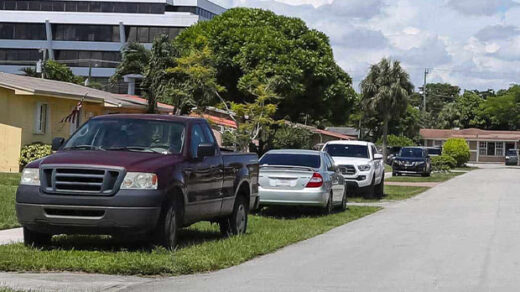Where police officers’ authority ends and citizens’ constitutional rights begin is not always clear-cut. You might not be aware of the rights that state and federal law grant you if you’re like many other people. But can police search a parked car on private property?
You might also be unsure of how those rights relate to police searches and seizures. It is critical for every citizen to understand when police have the authority to search private property and when they do not. If police officers discover evidence of a crime in an unlawful search, that evidence may be inadmissible or unusable during criminal proceedings.
Read Next: Can You Park And Store A Car In A Storage Unit?
Table of Contents
Can Police Search A Parked Car on A Private Property?
The Fourth Amendment is not violated when police enter a private area (such as a parking lot for a store) and peer inside a car. The officer would probably have good reason to carry on the search if there was anything illegal in plain sight. When you’re out in public, police are free to follow you as much as they like, no matter how harassing it may seem. It doesn’t become a problem unless they try to or actually stop you for an illegal reason.
When Must The Police Obtain A Warrant For A Search?
The majority of the time, a search warrant is required for law enforcement to enter a property before any searching can start. This rule has a number of exceptions, including the “automobile exception”.As long as there is reasonable suspicion that the car contains evidence of a crime and if it is “readily movable,” the police are allowed to search it without a warrant under this exception.”
The issue in Collins was whether that exception to the warrant requirement should be extended to a vehicle parked on private property, or within the “curtilage” of the home. The area immediately surrounding and connected to a home, such as a driveway, is included in the term “curtilage.” At the core of the 4th, The right to privacy and freedom from unjustified governmental intrusion is known as the amendment. See Florida v. Jardines and Silverman v. the United States. A search has taken place when the police physically enter the property to gather evidence, which is unreasonable without a warrant.
Exception for Automobiles v. Curtilage And The Warrant Requirement
In Collins, The court refused to use the automobile exception as an excuse for unauthorized searches of private property within a home’s boundaries. The Court seemed to be attempting to strike a balance between a person’s right to privacy inside their own home’s perimeter and a vehicle’s freedom of movement. The court did rule, however, that the need for law enforcement to search a vehicle inside of a home’s perimeter does not supersede the right to privacy. The 4th The automobile exception does not supersede the amendment’s primary goal, which is to protect the privacy of the home and its grounds.
When Is A Car Search by The Police Permitted?
In order to legally search your car, truck, van, or another vehicle, at least one of the following elements must be present:
- Police receive consent or permission to search from the driver/owner of the vehicle
- Police have”probable cause” or reasonable suspicion that there are illicit items or evidence of a crime in the vehicle
- The driver/owner of the vehicle has been arrested
- The police have a reasonable belief that a vehicle search is necessary for their own safety
Additionally, the police must have a good reason for stopping the driver. Police can only start a traffic stop if they have reason to believe the driver has broken the law.
When Are My Pockets, Purse, or Backpack Subject to A Police Search?
Police are authorized to search your clothing, bag, or belongings, if:
- You are arrested
- Illegal items are in “plain view”
- You give them consent to search you or your belongings
- Police have a reasonable suspicion to believe that the search is needed to protect officers or other people from an imminent threat
- Police have probable cause to believe that your clothing or belongings contain illegal items such as drugs or weapons
- You are entering a protected area such as a courthouse or correctional institution
What To Do If the Police Have A Warrant to Search Your Premises or Property
If the police arrive at your home or business and present you with a search warrant, you should double-check the validity of the warrant, the accuracy of the address, the presence of a description of the alleged crime, and the date and time of the search.
Permit the police to enter and search if you believe the warrant authorizes the investigation. Don’t fight them or block them with your body.
If you think the warrant is bogus, you have the right to verbally refuse the police entry, but once they have made a formal demand that the premises be opened to them based on the warrant, the police are allowed to force entry. Avoid blocking the police with your body. You might face an obstruction charge if it turns out that the warrant was legitimate all along.
When the police enter your property, they have the right to seize anything that is listed in the warrant or that they have reason to believe was used or obtained in the commission of an offense. The police may question you, but you are under no obligation to respond. But keep in mind that you should make it clear that you don’t want to answer any questions until you’ve spoken with a lawyer.
Other Posts You Might Like:



